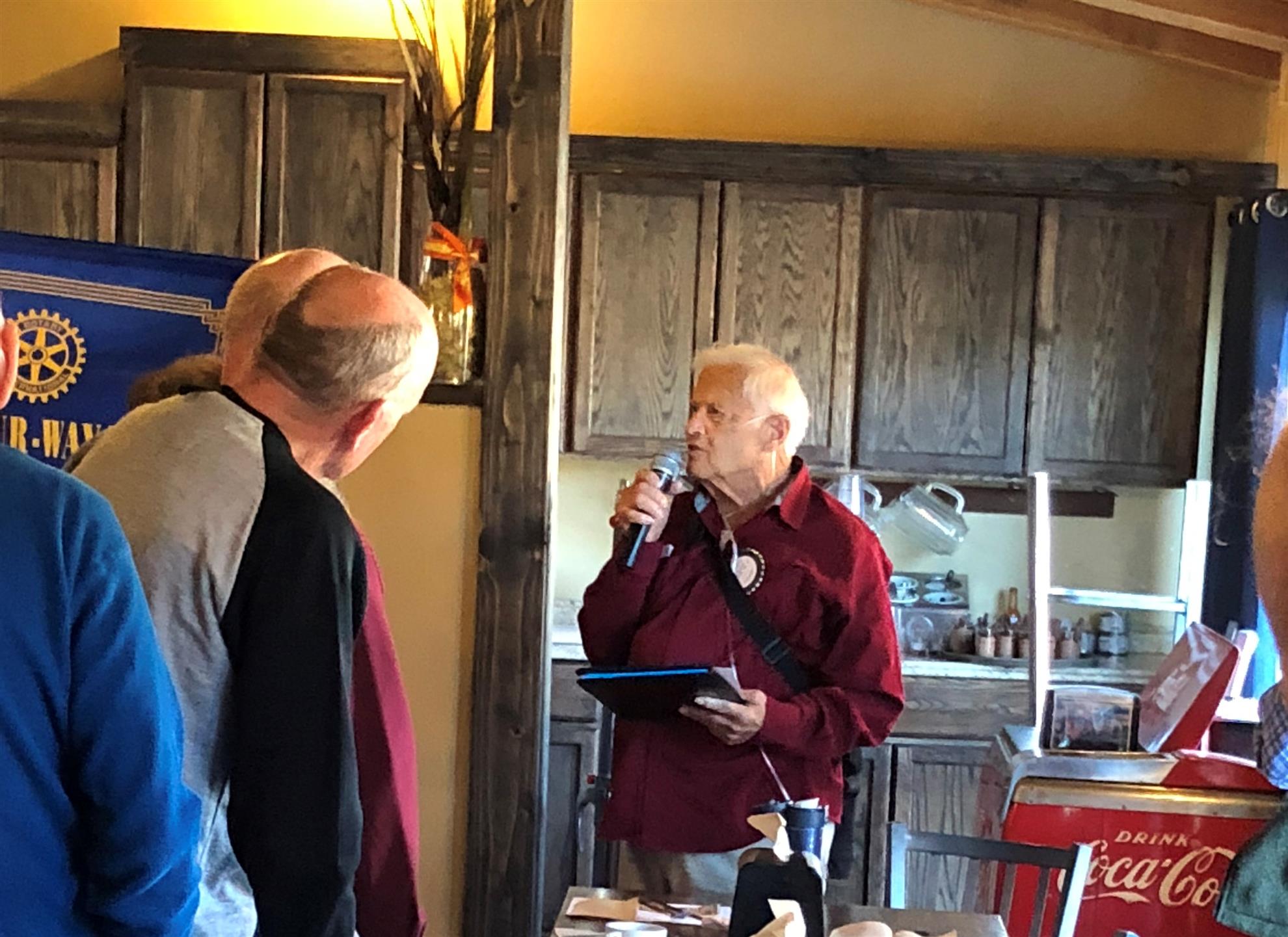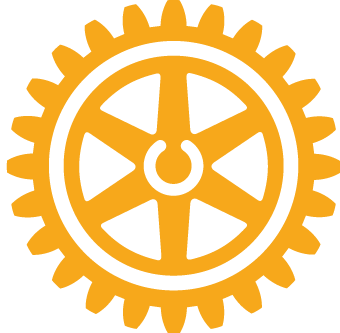
Dick was an insightful man, known to this writer principally for brightening Rotary meetings with occasional invocations illustrating key truths with stories.
His last invocation, on November 9, perhaps eerily foreshadowed his passing. Dick began with the observation that when we die, our lives are a story told by our survivors, and when they die, only a memory. But, citing the story of an experiment with monkeys on an isolated island, Dick pointed out that some things we do may become more than memories, and may arise to practices followed by others, improving the human condition. Thus, he concluded, volunteering to help in Rotary projects invites the establishment of the wide practice of volunteerism. So, “Rotary makes a difference,” Dick observed.
Dick’s invocation leapt to mind upon seeing a few days later the story from the Chicago Tribune, picked up on the internet, of a small-town, Illinois farm family. In September, the farmer, the last of uncounted generations who had farmed the same acreage since frontier days, succumbed to a sudden, fatal heart attack. Sons, daughters, brothers and sisters had all left the land, and there was no one to bring in the harvest, only the woman the farmer left behind.
But, there were his neighbors, farmers who every day, seemingly forever, had shared his lifetime of storms, droughts, good harvests, bad harvests, and fickle markets: a life of struggle, but always leavened by neighborliness. In their Sunday best at the funeral, “Don’t worry about the harvest,” they told the grieving woman. And when the time came, in early-dawn darkness there the neighboring farmers were, in phalanxes of rumbling harvesters, beginning the advance in good order through the rows of corn and soybeans to bring in the harvest.
When all of America was small towns, that’s how we were, everyone had your back. Now life is complex, and we are mobile; we are no longer rooted in the ground or follow the same lives from cradle to grave, and no longer share the good times and hard times with the same neighbors throughout. The human instinct, fundamental to our species, to band together to help others overcome in times of misfortune is blunted by distraction, engulfed by separation, and confused by uncertainty.
But to vindicate our basic instinct to help others, Dick’s last invocation points us to the remedy.
Well said, Dick. And may your insights long inspire our practices.
 Pagosa Springs Rotary Club
Pagosa Springs Rotary Club